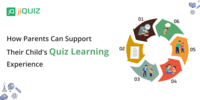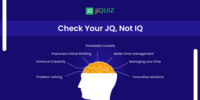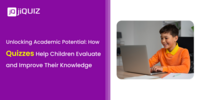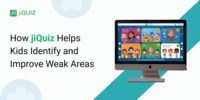- Jun 09, 2025
- Success Stories
- 467
Share this post on:
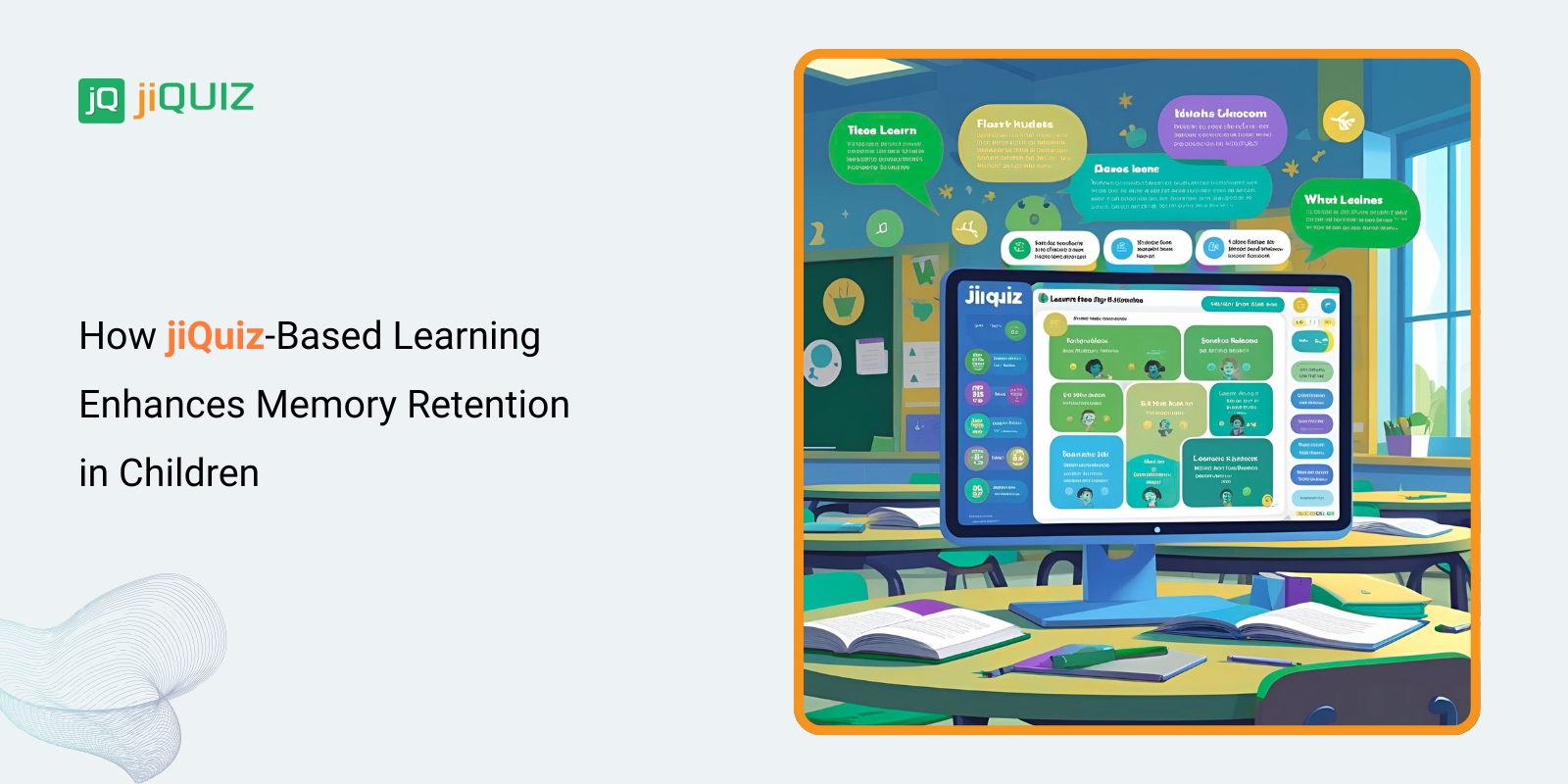
As parents and educators, we all want children to learn and retain information. We invest time, effort, and resources into their education, but sometimes it feels like the information just… disappears. Children often struggle to remember what they've learned, leading to frustration for both them and those guiding their learning journey. This isn't a matter of lack of intelligence; it's often related to how information is processed and stored. Traditional learning methods often rely heavily on passive absorption, which isn't the most effective way to cement knowledge in a child's memory. JiQuiz-based learning offers a dynamic and engaging alternative that transforms learning into an active, memorable experience.
Understanding How Memory Works (Briefly!)
Before diving into JiQuiz-based learning, it's helpful to grasp a basic understanding of memory. Memory isn't a single, monolithic entity. It's a complex system with different stages:
- Sensory Memory: Briefly holds information received through our senses.
- Short-Term Memory (Working Memory): Holds a limited amount of information for a short period.
- Long-Term Memory: Stores information for extended periods. This is where we want information to reside!
The journey from short-term to long-term memory isn't automatic. It requires active processing and repeated exposure.
What is JiQuiz-Based Learning? Defining the Approach
JiQuiz-based learning (or simply 'quiz learning') is an educational approach that prioritizes frequent, low-stakes quizzes to reinforce learning and facilitate memory retention. It's more than just end-of-chapter tests. It involves incorporating short, engaging quizzes throughout the learning process – after a lesson, a chapter, or even a single concept. The key is that these quizzes aren’t primarily used for grading; their primary purpose is to help the child learn. The term "JiQuiz" isn't a universally recognized term; it's used here to represent this focused, embedded quiz-based methodology.
The Science Behind It: Why Quizzes Stick in the Brain
The effectiveness of JiQuiz-based learning is deeply rooted in cognitive science principles. Here’s a breakdown of the core mechanisms:
- The Retrieval Practice Effect: This is perhaps the most crucial element. Retrieving information from memory strengthens the memory trace. Each time a child answers a quiz question, they're actively pulling information out of their memory, making that memory stronger and more accessible. It's like exercising a muscle; the more you use it, the stronger it becomes.
- Spaced Repetition & the Forgetting Curve: Hermann Ebbinghaus's “Forgetting Curve” illustrates that we rapidly forget information shortly after learning it. JiQuiz-based learning leverages spaced repetition – reviewing material at increasing intervals – to combat this. Frequent, well-timed quizzes ensure information is revisited before it fades from memory.
- Active Recall & Elaborative Encoding: Passive reading or listening often leads to shallow processing. Active recall – actively retrieving information – forces deeper processing. As a child tries to answer a quiz question, they’re not just recalling a fact; they’re often making connections to other knowledge, elaborating on the concept, and creating a richer, more meaningful memory.
- Testing Effect and Metacognition: The “Testing Effect” demonstrates that testing oneself on material is a more effective learning strategy than simply restudying it. Moreover, JiQuiz learning fosters metacognition – thinking about one's own thinking. When children review their quiz answers, they become more aware of what they know and what they need to learn.
JiQuiz-Based Learning vs. Traditional Learning: A Comparison
| Feature | Traditional Learning (Lecture/Reading) | JiQuiz-Based Learning ||---|---|---|| Activity Level | Primarily passive | Primarily active || Assessment Focus | Summative (end-of-unit tests) | Formative (ongoing quizzes) || Purpose of Assessment | Grading & Evaluation | Learning & Reinforcement || Engagement | Can be lower, especially for some learners | Generally higher, due to active participation || Memory Retention | Often lower, information can be quickly forgotten | Significantly higher, due to retrieval practice and spaced repetition || Feedback | Less frequent, often delayed | More frequent, often immediate |
Benefits of JiQuiz-Based Learning for Children:
- Improved Memory Retention: The core benefit, backed by cognitive science.
- Increased Engagement & Motivation: Games and challenges make learning fun.
- Enhanced Understanding & Application: Active recall promotes deeper comprehension.
- Development of Critical Thinking Skills: Analyzing questions and justifying answers strengthens analytical skills.
- Building Confidence & a Growth Mindset: Frequent successes, even with small quizzes, build confidence. Understanding mistakes as learning opportunities promotes a growth mindset.
Practical Strategies for Implementing JiQuiz-Based Learning at Home and in the Classroom:
- Creating Effective Quizzes: Focus on core concepts. Use a variety of question types. Ensure questions are clear and concise.
- Types of JiQuiz Formats: Multiple choice, true/false, matching, fill-in-the-blank, short answer - use a mix.
- Incorporating Feedback and Gamification: Provide immediate feedback. Award points or badges for correct answers. Turn quizzes into games with leaderboards (used cautiously to avoid demotivating some children).
- Adapting JiQuiz Learning to Different Age Groups & Learning Styles: Younger children benefit from more visual quizzes. Older children can handle more complex questions. Tailor the approach to individual learning styles (visual, auditory, kinesthetic).
Addressing Potential Concerns & Limitations:
- Over-Reliance on Memorization: Quizzes should focus on understanding, not just rote memorization.
- Test Anxiety: Emphasize the low-stakes nature of quizzes. Create a supportive learning environment.
- Time Constraints: JiQuiz-based learning requires more time upfront to create quizzes, but saves time in the long run by improving retention.
- Curriculum Alignment: Ensure quizzes align with curriculum objectives.
Examples of JiQuiz Platforms and Resources:
- Kahoot!: Popular game-based learning platform.
- Quizizz: Another engaging quiz creation and delivery platform.
- Google Forms: Simple and free for creating quizzes.
- Blooket: A fun alternative to Kahoot and Quizizz with unique game modes.
- Many online educational platforms integrate quiz features.
Conclusion: Empowering Children Through Active Recall
JiQuiz-based learning isn't just a trendy educational technique; it's a scientifically-backed approach to transforming the learning experience for children. By embracing active recall and prioritizing engagement, we can empower them to not just learn, but to remember – setting them up for success in all areas of their lives. It’s about shifting the focus from simply delivering information to creating a learning environment where children actively participate in their own learning journey, and where memory retention becomes a natural byproduct of that engagement.

